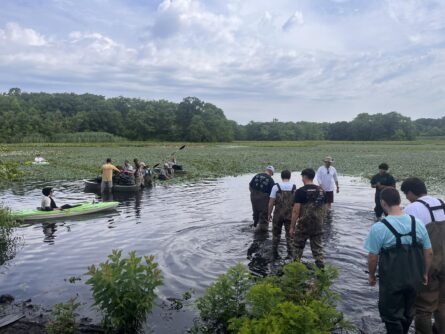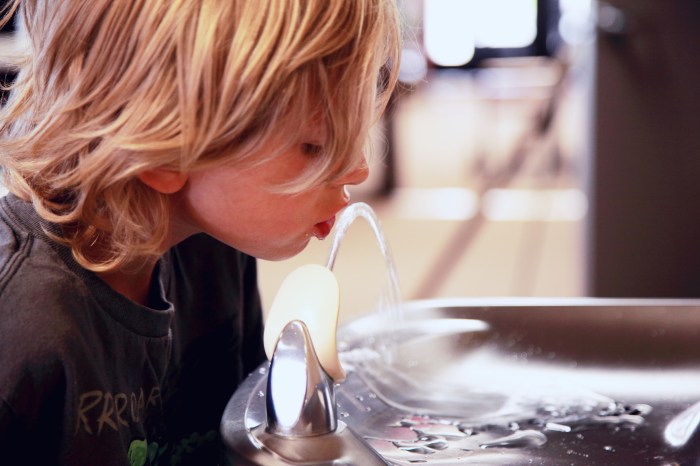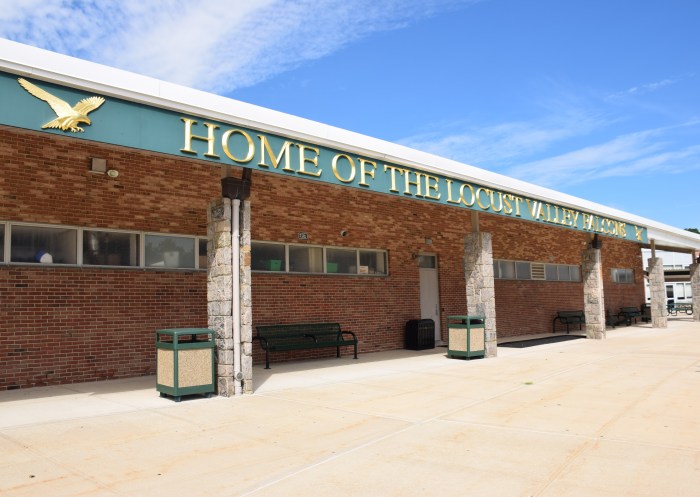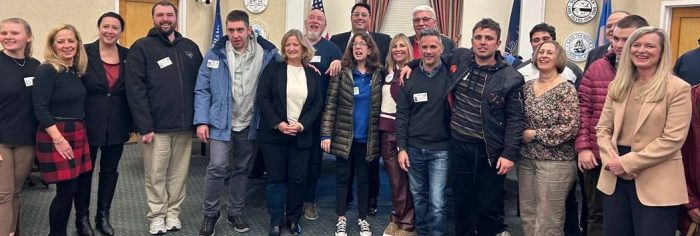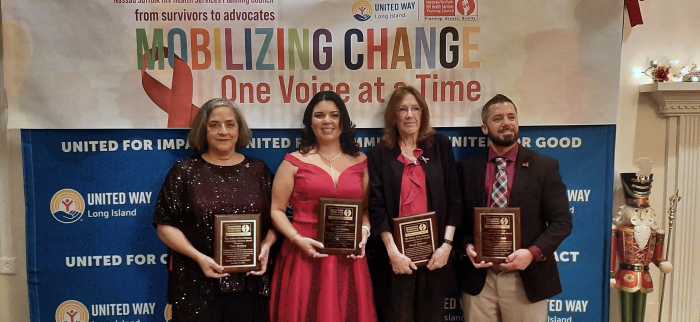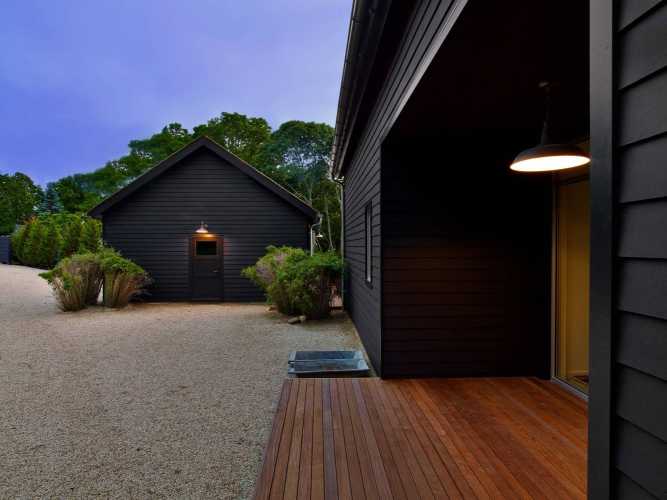BY Erica Schwartz
Local volunteers, led by state Sen. Steve Rhoads and the state Department of Environmental Conservation, removed 150 bags of highly invasive water chestnuts from Mill Pond in Wantagh on July 7 as part of the annual water chestnut pull.
Cathy Haas, regional director of the DEC, said the organization is grateful for Rhoads’ dedication to participating in the annual water chestnut pulls.

“The New York State Department of Environmental Conservation is grateful for Senator Rhoads’ continued commitment and participation in DEC’s annual water chestnut pulls at Mill Pond,” she said. “Removing this invasive plant from our lakes and ponds is vital to the continued use and enjoyment of Long Island’s waterways.”
This water chestnut pull was one of the many clean-ups Rhoads led as a senator and county legislator.
Removing invasive species like the European water chestnut is important for maintaining ecological balance in Mill Pond and other bodies of water that water chestnuts invade. The plant forms tangled webs across the water’s surface, creating competition for resources like oxygen with native aquatic life and making recreational water activities difficult for fishers and boaters, the Department of Environmental Conservation says.
According to the Department of Environmental Conservation, the highly invasive European water chestnut, Trapa natans, was introduced to northeast waters from Eurasia and Africa in the mid-19th century as an ornamental plant. The resurgence of water chestnuts in Mill Pond was first noted by residents in 2005 and confirmed in 2008, the Long Island Sound Study reported.
DEC has hosted six water chestnut pulls this year, five of which were conducted at Massapequa Park. Pulls are typically conducted in spring and early summer before the seeds fully develop. Haas says the organization encourages locals to participate in these clean-ups.
“We look forward to our ongoing partnership and invite any who live near Mill Pond Preserve or Massapequa Lake to participate next summer and help reduce the negative impacts of this invasive species,” she said.




